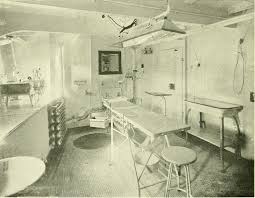
The new office surgery requirements became law in Florida and is effective January 1, 2020, this law is codified in Sections 458.328 and 459.0138, Florida Statutes. The law basically requires that any office in which a physician performs a liposuction procedure in which more than 1,000 cubic centimeters of supernatant fat is removed, a Level II office surgery, or a Level III office surgery must register with the department unless the office is licensed as a facility. Even if the office was previously registered the same must re-register by January 1, 2020.
For your benefit we cover a basic description of the office surgery levels below:
Level I office surgery includes, but is not limited to, the following:
- Minor procedures such as excision of skin lesions, moles, warts, cysts, lipomas and repair of lacerations or surgery limited to the skin and subcutaneous tissue performed under topical or local anesthesia not involving drug-induced alteration of consciousness other than minimal pre-operative tranquilization of the patient.
- Liposuction involving the removal of less than 4000cc supernatant fat is permitted.
- Incision and drainage of superficial abscesses, limited endoscopies such as proctoscopies, skin biopsies, arthrocentesis, thoracentesis, paracentesis, dilation of urethra, cysto-scopic procedures, and closed reduction of simple fractures or small joint dislocations (i.e. finger and toe joints).
- Pre-operative medications not required or used other than minimal pre-operative tranquilization of the patient; anesthesia is local, topical, or none. No drug-induced alteration of consciousness other than minimal pre-operative tranquilization of the patient is permitted in level I Office Surgery.
- Chances of complication requiring hospitalization are remote.
Level II Office Surgery is that in which peri-operative medication and sedation are used intravenously, intramuscularly, or rectally, thus making intra and post-operative monitoring necessary. Such procedures shall include, but not be limited to: hemorrhoidectomy, hernia repair, reduction of simple fractures, large joint dislocations, breast biopsies, colonoscopy, and liposuction involving the removal of up to 4000cc supernatant fat. Also, includes any surgery in which the patient is placed in a state which allows the patient to tolerate unpleasant procedures while maintaining adequate cardiorespiratory function and the ability to respond purposefully to verbal command and/or tactile stimulation. Patients whose only response is reflex withdrawal from a painful stimulus are sedated to a greater degree than encompassed by this definition.
Level III Office Surgery is that surgery which involves, or reasonably should require, the use of a general anesthesia or major conduction anesthesia and pre-operative sedation. This includes, but is not limited to, the use of:
- Intravenous sedation beyond that defined for Level II office surgery;
- General Anesthesia: loss of consciousness and loss of vital reflexes with probable requirement of external support of pulmonary or cardiac functions; or
- Major conduction anesthesia.
Only patients classified under the American Society of Anesthesiologist’s (ASA) risk classification criteria as Class I or, II, are appropriate candidates for Level III office surgery.
In addition to registration, the law states that:
- Each office must designate a physician who is responsible for the office’s compliance with the office health and safety requirements.
- Designated physician must have a full, active, and unencumbered license and shall practice at the office for which he or she has assumed responsibility.
- Each office must establish financial responsibility by demonstrating that it has met and continues to maintain, at a minimum, the same requirements applicable to physicians in ss. 320 and 459.0085.
- Under this law, the department shall inspect a registered office at least annually, including a review of patient records, to ensure that the office is in compliance.
- The department may suspend or revoke the registration of an office in which a procedure or surgery identified above is performed for failure of any of its physicians, owners, or operators to comply with this law.
- If an office’s registration is revoked for any reason, the department may deny any person named in the registration documents of the office, including the persons who own or operate the office, individually or as part of a group, from registering an office to perform procedures or office surgeries for 5 years after the revocation date.
- A physician may only perform a procedure or surgery identified in paragraph (a) in an office that is registered with the department.
- The board shall impose a fine of $5,000 per day on a physician who performs a procedure or surgery in an office that is not registered with the department.
Note: It is the physician’s responsibility to ensure that every office in which he or she performs Levels II or III surgical procedures as described above is registered, regardless of whether other physicians are practicing in the same office or whether the office is non-physician owned.
Understand that the above information represents but some excerpts from the law.
